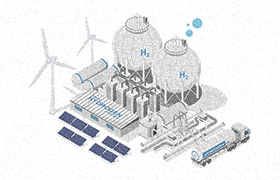
Sun Pharma's Ranbaxy buy could be attractive for API buyers

India's Sun Pharma on Monday agreed to buy struggling generic drugmaker Ranbaxy for $3.2 billion from Japan's Daiichi Sankyo. This deal is one of the biggest in the Indian pharma sector.
India is a key manufacturing destination in the pharma value chain and has the highest number of FDA registered formulation units outside of the U.S. Aided by lower costs, the country has emerged as one of favoured drug sourcing destinations in the world.
And according to Reuters, Indian firms supply about 40 percent of generic and over-the-counter drugs used in the U.S.
However, as noted in our previous blog post, the country is unable to fully capitalize on this advantage because of recurring quality issues. The news agency recently reported that some U.S. doctors are becoming concerned about the quality of generic drugs made by Indian firms. (http://beroeinc.co/1dPEs3n)
Sun Pharma-Ranbaxy deal happened in the backdrop of sustained worries over quality of generic drugs manufactured at third-party facilities. And what does the deal mean for pharma procurement?
According to Beroe analyst Kamaljit Behera, the deal would be a game changer in the Indian pharma sector.
Competition would intensify among the Top 20 players, who hold more than 75% of the Indian Pharma market. The consolidation could further squeeze out the mid and small players, as per Behera's calculation.
A combined Sun Pharma and Ranbaxy will have more than 300 Active Pharma Ingredients (APIs) in its portfolio, and the deal would enable global pharma companies to further consolidate and rationalize their supply base for APIs and intermediates, according to Behera.
The combined entity can potentially emerge as a market leader for many APIs and intermediates across diverse therapies including Cardiovascular, Anti-infectives, Diabetes, Central Nervous System (CNS), Anti-retroviral (ARVs), Oncology and Gastrointestinal etc.
However, Sun Pharma will have to continue addressing lingering quality concerns of generics manufactured by Indian Contract Manufacturing Organizations (CMOs) in order to gain traction in the U.S. - its biggest market.
Behera said there is a possibility that the new company can be successful in changing the current negative perception given that Sun Pharma has a better handle of FDA processes.
Reuters reported on Wednesday that Sun Pharma plans to begin phasing out sales of generic drugs branded as Ranbaxy products in the U.S. after the completion of the merger. (http://beroeinc.co/1qkv0a6)
This move could be one of the steps aimed at rectifying the image of Ranbaxy, some of whose drugs have faced import bans from the FDA. Sun Pharma has also faced similar bans albeit on a smaller scale.
The Sun Pharma-Ranbaxy deal becomes more attractive for U.S. and EU pharma companies as the new merged entity can offer significant scalability, according to Behera.
The Indian pharma market is turning dynamic by the day and as we said in our previous blog post, category managers will have to continue monitoring this sector.
Related Insights:
View All
Get more stories like this
Subscirbe for more news,updates and insights from Beroe






